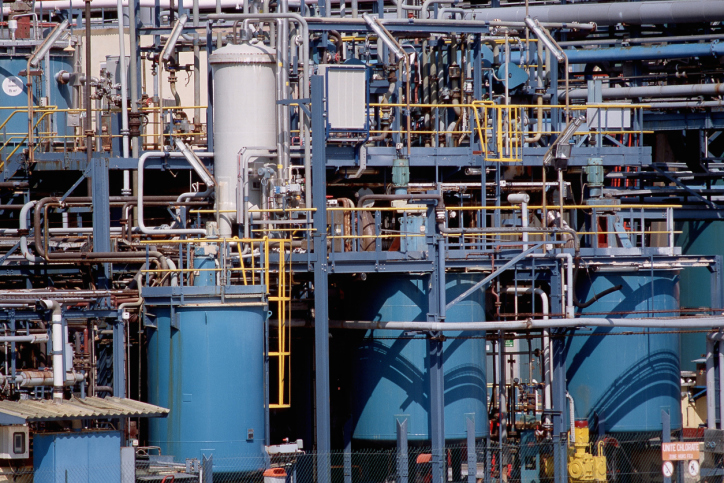Energy
Why Chicago Gas Price Spike Spells More Pain for Oil Producers
Published:
Last Updated:

A refinery outage at the Whiting, Ind., complex owned by BP PLC (NYSE: BP) has sent gas prices in Chicago soaring. The 413,000 barrel-per-day refinery experienced some leaking tubes last weekend and the refinery has shut down a 250,000 barrel-per-day distillation tower and is not expected to have the unit back in service for at least a month.
Chicago-area drivers are not the only ones paying the price however. The failed refinery unit is capable of refining heavy crude oil from western Canada, and the shutdown has cut demand for Western Canadian Select (WCS) to the point where buyers were paying just $23.33 a barrel for WCS on Tuesday.
ALSO READ: The Most (and Least) Expensive States to Drive
If producers are unable to send their WCS crude to Whiting, it is likely to be sent down the line to Cushing, Okla., where inventories could rise sharply again. As of last Friday, the stockpile at Cushing totaled 57.1 million barrels. The total capacity at the facility is about 71 million barrels, according to the U.S. Energy Information Administration (EIA), although other estimates put Cushing’s capacity as high as 83 million barrels. In April the EIA reported that stockpiles at Cushing briefly exceeded 62 million barrels.
U.S. refineries have been running at a nearly unprecedented rate of more than 96% of capacity as refiners seek to take advantage of the high margins and increased demand for gasoline due to the low price of crude oil. Throughput of 17 million barrels a day in each of the past two weeks is a record for U.S. refiners.
These run rates could be taking a toll on refinery equipment. While there is no direct evidence that refiners have neglected routine maintenance, the record-breaking run rates could indicate that they have been pushing some limits. And that could — perhaps should — result in more turnarounds and maintenance once the summer driving season starts winding down after Labor Day.
As autumn maintenance reduces refinery capacity, stockpiles will grow again and crude oil prices will be under more pressure. Refiners’ margins could improve even more while producers will once more take the pain.
ALSO READ: 3 Drilling Stocks to Buy Ahead of 2016 Recovery
Credit card companies are handing out rewards and benefits to win the best customers. A good cash back card can be worth thousands of dollars a year in free money, not to mention other perks like travel, insurance, and access to fancy lounges. See our top picks for the best credit cards today. You won’t want to miss some of these offers.
Flywheel Publishing has partnered with CardRatings for our coverage of credit card products. Flywheel Publishing and CardRatings may receive a commission from card issuers.
Thank you for reading! Have some feedback for us?
Contact the 24/7 Wall St. editorial team.